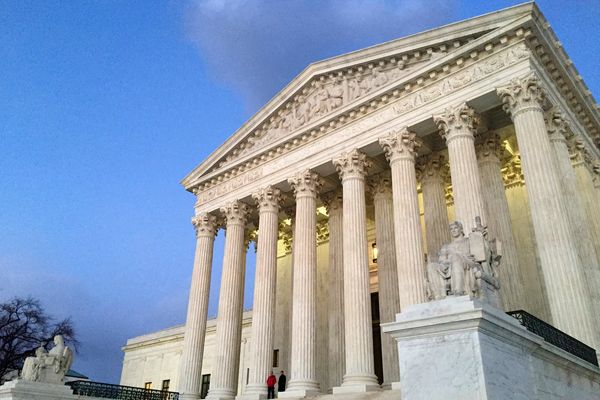In December 2023, Ontario’s Superior Court determined that what’s known as the “second-generation cut-off rule” in the federal Citizenship Act violates the Canadian Charter of Rights and Freedoms by discriminating on the basis of national origin and sex.
The second-generation rule was adopted in 2009 under Stephen Harper’s Conservative government.
It limited Canadian citizenship to the first generation born abroad in an effort to create a clear and simple rule, and, according to Diane Finley, the minister of citizenship and immigration at the time, to “protect the value of Canadian citizenship by ensuring that our citizens have a real connection to this country.”
The concern with connection makes sense. Members of a political community — citizens — should have a relationship to that community. But what does connection mean, and how do we know when it exists?
Secure claim to citizenship?
Canada, like many other countries in the world, uses birth as a proxy for connection. If you’re born in Canada or you’re born abroad to a parent who’s a Canadian citizen, you too are a citizen.
In many cases, birth appears to offer a secure claim to citizenship since the facts of someone’s birth are generally unassailable. But as the second-generation cut-off rule demonstrates, governments can shift the legal meaning of those circumstances with significant repercussions.
The Bjorkquist et al. v. Attorney General of Canada case heard in Ontario in December involves seven families. Their children were born abroad and denied Canadian citizenship because their Canadian parent or parents were also born abroad.
In each family, the parent has lived in Canada for many years, views Canada as their home and/or intends to return to Canada if they aren’t currently living here. The parents, all Canadian citizens, argued their inability to pass on their citizenship to their children, despite their connection to Canada, imposed second-class citizenship status upon them. The court agreed.
Back when the law was changed, the House of Commons Committee on Citizenship and Immigration unanimously endorsed the second-generation cut-off. Effectively, the clause was the cost for passing a larger package of reforms to the Citizenship Act.
For several years, people known as the “lost Canadians” — those who have fallen through the cracks of complex citizenship law — had been advocating for changes that would address discriminatory provisions in the act.
These people considered themselves Canadians, but had been denied citizenship because of their age, and/or the sex and marital status of their Canadian parent at the time of their birth.
For example, prior to 2009, a child born abroad before Feb. 15, 1977, to a Canadian woman married to a non-Canadian would not be entitled to Canadian citizenship. The reform package removed the sex and wedlock status of the Canadian parent as conditions for citizenship for children born abroad after Jan. 1, 1947, when Canada’s first Citizenship Act came into force.
Inconsistently enforced
Another challenge leading to those reforms was a requirement that second-generation children born abroad affirm their citizenship by the age of 28. They also had to demonstrate one year of residency in Canada immediately prior to applying or some other substantial connection to the country.
In practice, though, many Canadians born abroad were unaware of this provision, and it was inconsistently enforced.
Limiting citizenship to the first generation born abroad offered a simple, if blunt, solution to this problem. Parliamentarians were also assured that an expedited immigration sponsorship process would address situations like those faced by the Bjorkquist et al. families.
Unfortunately, that process has proven unreliable — so much so, in fact, that the judge in the Bjorkquist case described it as “error-riddled, highly discretionary, and inequitable in …application, and as such … unsatisfactory.”
It’s clear that the second-generation cut-off rule excludes children whose parents have a demonstrable connection to Canada, and who have a high likelihood of being connected to Canada as well. So how might that connection be established?
Parliament is currently considering Bill S-245, that would amend the Citizenship Act. Its original draft proposed reinstating the second-generation affirmation and one-year residency requirement.
It now includes an amendment requiring a more rigorous connection test, drawing from Canada’s requirements for permanent residency. The Canadian parent of a child born abroad would need to have lived in Canada for 1,095 days (three years) in total prior to the birth of their child.
Relying on proxies
In this way, the Citizenship Act could address concerns about what Finley referred to as “endless generations living abroad” that spurred the creation of the second-generation cut-off rule in the first place. As well, Canadians would be able to pursue opportunities around the world while maintaining their connection to Canada.
Ultimately, what’s at issue is what’s considered the threshold for citizenship. Canada doesn’t require citizens or those claiming citizenship to pass civics tests or commit to substantive engagement in governing. Instead, it relies on proxies like birth, residency and time since they appear less vulnerable to political manipulation.
These proxies may be imperfect. Yet the Bjorkquist case suggests that when thoughtfully constructed, they can ensure Canadian citizenship is bestowed upon those whose attachment and contributions to Canada are real.
Lois Harder has received funding from the Social Sciences and Humanities Research Council, the Aid to Scholarly Publishing Program, and the Court Challenges Program.
This article was originally published on The Conversation. Read the original article.







